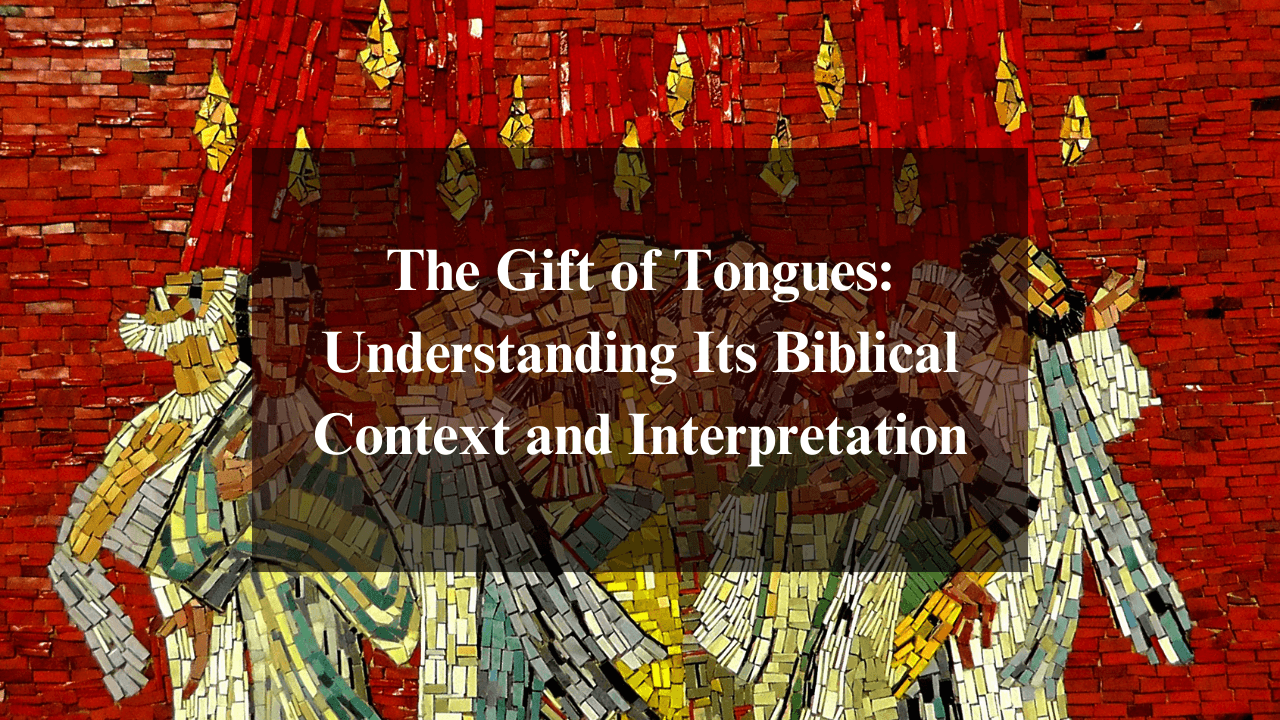The Gift of Tongues - Understanding Its Biblical Context and Interpretation
Bible31st of August, 2024
In the world of faith, speaking in tongues—or glossolalia—stands out as one of the more fascinating and sometimes controversial spiritual gifts. Rooted in the early Christian tradition, particularly within the New Testament, speaking in tongues is often celebrated as a divine encounter with the Holy Spirit. Yet, according to biblical teachings, this phenomenon should not occur in isolation; rather, it necessitates interpretation to be meaningful and edifying to the congregation.
Biblical Foundation for Speaking in Tongues
The main scriptural references to speaking in tongues can be found in the New Testament, particularly in the books of Acts and Corinthians. The most well-known instance occurs in Acts 2 during the Pentecost when the Holy Spirit descended upon the apostles, enabling them to speak in various languages so that people from different nations could understand them. This miraculous event marked the birth of the Christian Church and underscored the universal message of Christ.
However, the Apostle Paul’s teachings provide a more nuanced understanding of speaking in tongues, especially in 1 Corinthians 12-14. Here, Paul emphasizes the need for order in worship and highlights the importance of interpretation. He states, “If I pray in a tongue, my spirit prays, but my mind is unfruitful” (1 Corinthians 14:14). This leads to an important conclusion: while speaking in tongues can be a personal spiritual experience, it should not detract from the collective experience of the congregation.
The Need for Interpretation
Paul's insistence on interpretation stems from the purpose of spiritual gifts—edification, encouragement, and instruction within the church. In 1 Corinthians 14:5, he clearly articulates, “Now I want you all to speak in tongues, but even more to prophesy. The one who prophesies is greater than the one who speaks in tongues, unless someone interprets, so that the church may be built up.” Here, Paul draws a stark comparison between speaking in tongues and prophecy, underscoring that the latter serves a greater purpose by being understandable and applicable to all.
1. Edification of the Church:
The goal of speaking in tongues accompanied by interpretation is to build up the community. When an utterance in tongues is followed by a clear interpretation, the body of Christ is enriched and strengthened. It promotes a sense of unity, as everyone can grasp the message being conveyed, thus creating a more profound communal experience of worship.
2. Clarity Over Confusion:
In a diverse congregation, it’s crucial for communication to be clear. Without interpretation, speaking in tongues can lead to confusion and misunderstanding. Paul urges that if no interpreter is present, the individual should keep their speaking private. Clarity is key in ensuring that worship is a place of understanding rather than chaos.
Encouragement of the Believer:
When interpretations are offered, they can serve to uplift those present. The content of the tongues can often mirror the collective struggles, joys, and aspirations of the body, providing an encouraging message that resonates deeply within the hearts of its members.
Modern Implications
For many contemporary churches, understanding the guidelines for speaking in tongues and interpretation can help foster a spiritually enriching environment. Here are a few considerations for congregations today:
1. Cultivating Openness:
Churches should create a welcoming atmosphere where the move of the Holy Spirit is expected and encouraged, but always with structure. Leaders can educate congregants on the importance of interpretation, ensuring that everyone understands their role in maintaining order during worship.
Empowering Interpretive Gifts:
Church leaders can seek to identify individuals who have the gift of interpretation. Providing training and support can enable these individuals to step forward when the occasion calls for it, fostering a smoother flow of spiritual gifts.
Promoting Balance:
A balanced approach to worship is crucial. While tongues can be a vibrant expression of faith, congregational edification through interpretation should remain a priority to ensure that the message of God is accessible to all.
Conclusion
Speaking in tongues is undoubtedly a powerful gift and a means of connecting with the divine. However, as outlined in the teachings of the Apostle Paul, it must go hand-in-hand with interpretation to fulfill its intended purpose within the church community. By emphasizing clarity, edification, and unity, congregations can fully embrace this beautiful gift while also adhering to the biblical principles that guide its practice. In doing so, both individual believers and the church as a whole can experience richer, more profound encounters with the Holy Spirit.Get all the latest stories to your inbox
I write to my friends every few weeks
